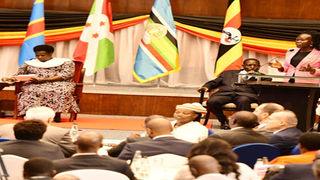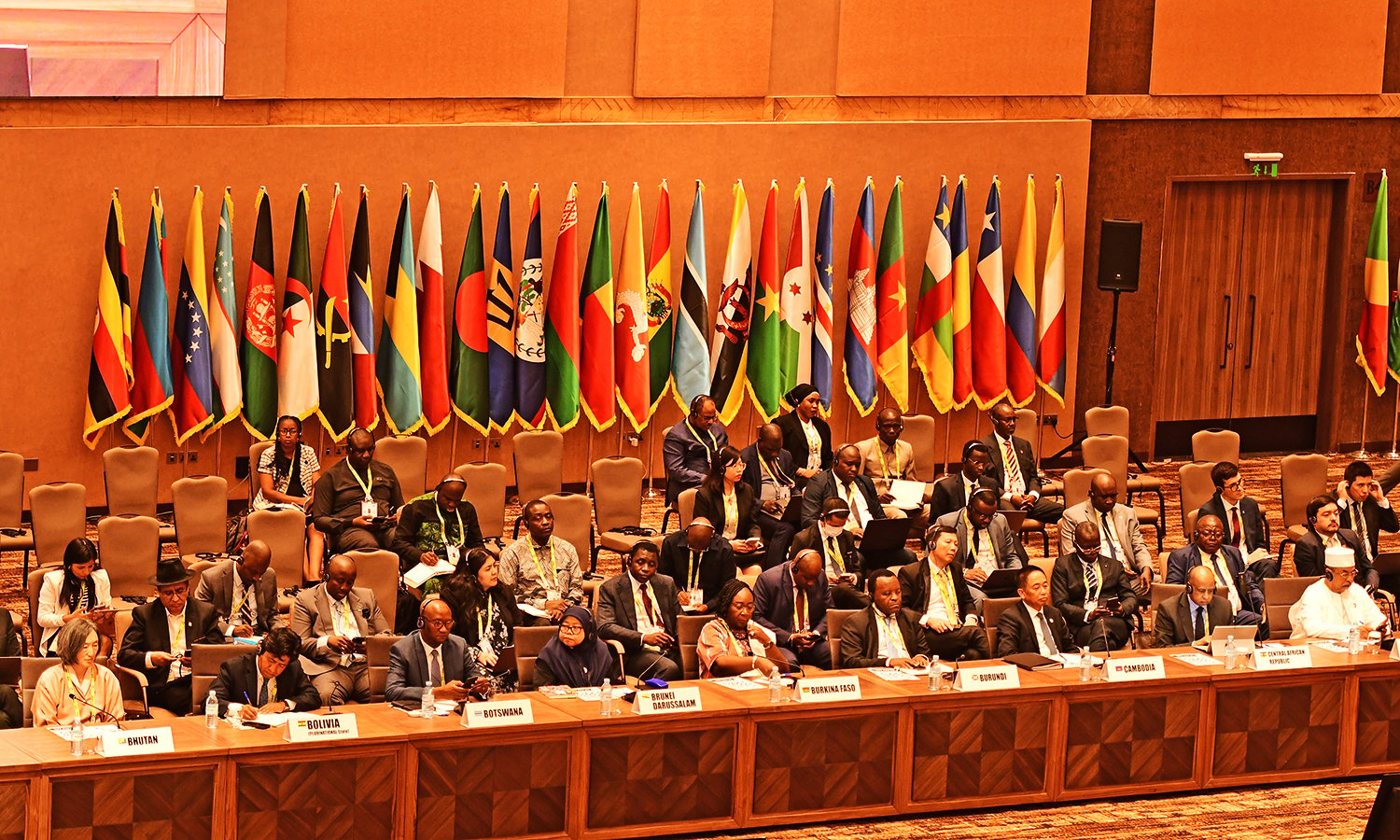
State Minister of Finance for Investment and Privatisation Evelyn Anite addresses the 19th NAM Business Summit at Kampala Serena hotel last week. PHOTO / ABUBAKER LUBOWA
Prosper
Prime
NAM summit: Seven lessons from the conference
What you need to know:
The NAM Movement has 120 member states, 17 observer countries and 10 observer organisations – all presenting huge potential for trade.
The 19th Non-Aligned Movement (NAM) Summit hosted in Kampala last week may not come around anytime soon. NAM and the G77 countries accounts for the world’s largest economic area by Gross Domestic Product. It is also the largest market with more than half of the world’s population, and home to some of the world’s largest conglomerates and corporations.
Presently, the Movement has 120 member states, 17 observer countries and 10 observer organisations – all presenting huge potential for trade, investment and economic cooperation. So, member countries consider it a huge opportunity and privilege to host it.
However, over the week-long international conference, Prosper magazine learned seven things – some of which the host/organiser could have done better.
1.Government, through the Private Sector Foundation Uganda and its regional private sector apex body - the East African Business Council, held a successful Business and Investment Forum. Government agencies such as Uganda Investment Authority, Uganda Export Promotion Board and even Uganda Free Zones Authority all stepped up to be counted.
The National Social Security Fund also made sure it flex its financial muscle – presenting itself as a viable investment partner. However, not all had a good day as some people thought the forum was a government show rather than the private sector party.
2. Delegates from the NAM member nation showed great interest in doing business with Uganda. And the Ugandan officials did a good job in presenting opportunities abounding in the country. Promotion of trade, tourism, and investment was done with passion and to a large degree, with logic as well. The only challenge is that in some instances, the presentations lacked proper timelines or estimated required investment.
3. Now, the level of confusion from clearance by the Authority was shocking although not surprising. Many of the exhibitors couldn’t set up in time. It took some the whole morning if not most of the day to set up their exhibition that was meant to showcase alongside the business and Investment forum. Nobody appeared to take responsibility for the mishap as finger pointing between security and the organisers pertaining to clearance was criss-crossing.
4. Business in parts of Kampala, especially small businesses wished this Summit didn’t happen. Boda-Boda (Boda taxi) were barred from their usual spots (stage). Pedestrians and motorists were restricted in certain spaces they would usually access freely. As a result of this disenfranchisement, some businesses remain closed for the duration of the Summit, something that didn’t go well with a section of the population.
5.Despite tax exemptions and related incentive accounting for massive revenue loss, government is hell-bent on maintaining the status quo at all costs. Dishing out tax exemptions up to 10 years and in some cases even more, in addition to giving free land as a sweetener to invest here is not about to stop. It is actually a blank cheque to the investor who is also free to repatriate 100 per cent profit and capital as and when they wish. They also do not have to have a local partner as is the case in many countries, including in NAM member nations. It appeared as if demands - no matter how reasonable or fair they are, shouldn’t be part of the deal for an investor looking to invest in Uganda.
6. European Union wants to be part of the party. In his speech at the Business Forum, the European Union (EU) Ambassador to Uganda Jan Sadek was quick to note that the economic benefits from NAM, are not formally aligned with or against any major bloc.
7. Do you remember the Minister of Finance, Matia Kasaija’s aircraft which crash landed because of Covid-19 pandemic and its resultant effects? He said it is now back, and unlikely to veer-off the runway on account of a projected strong economy.
Unlike previously, when the economy was projected to grow at between 4 and-5 per cent, he said: “We are going to witness a 6.4 growth.” Time will tell if this projection comes to pass or receive significant structural damage due to a hard landing or runway veer-off.





